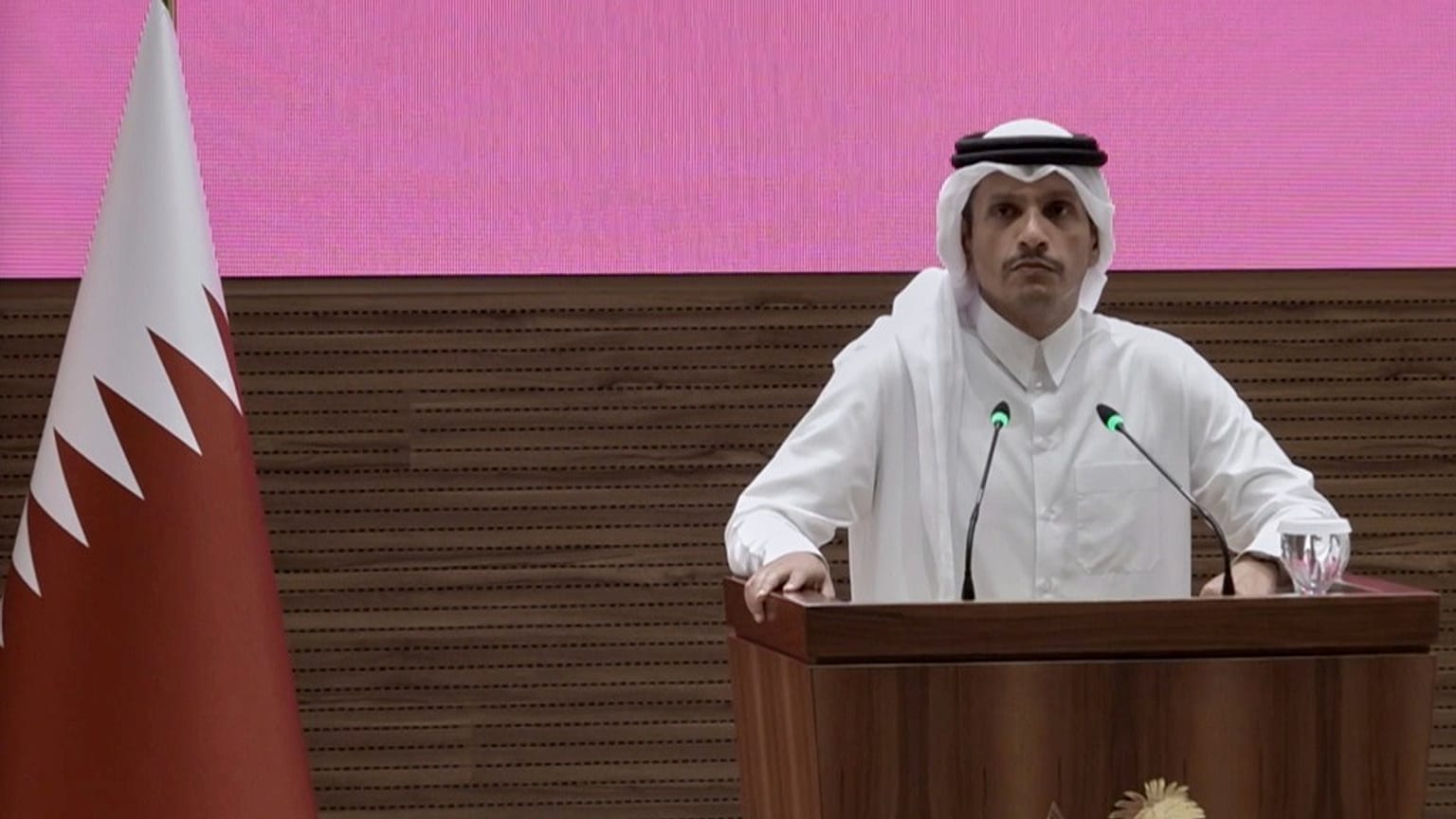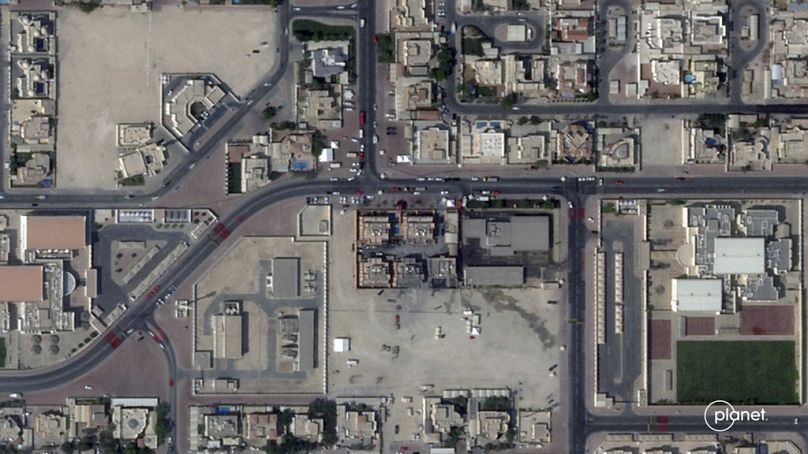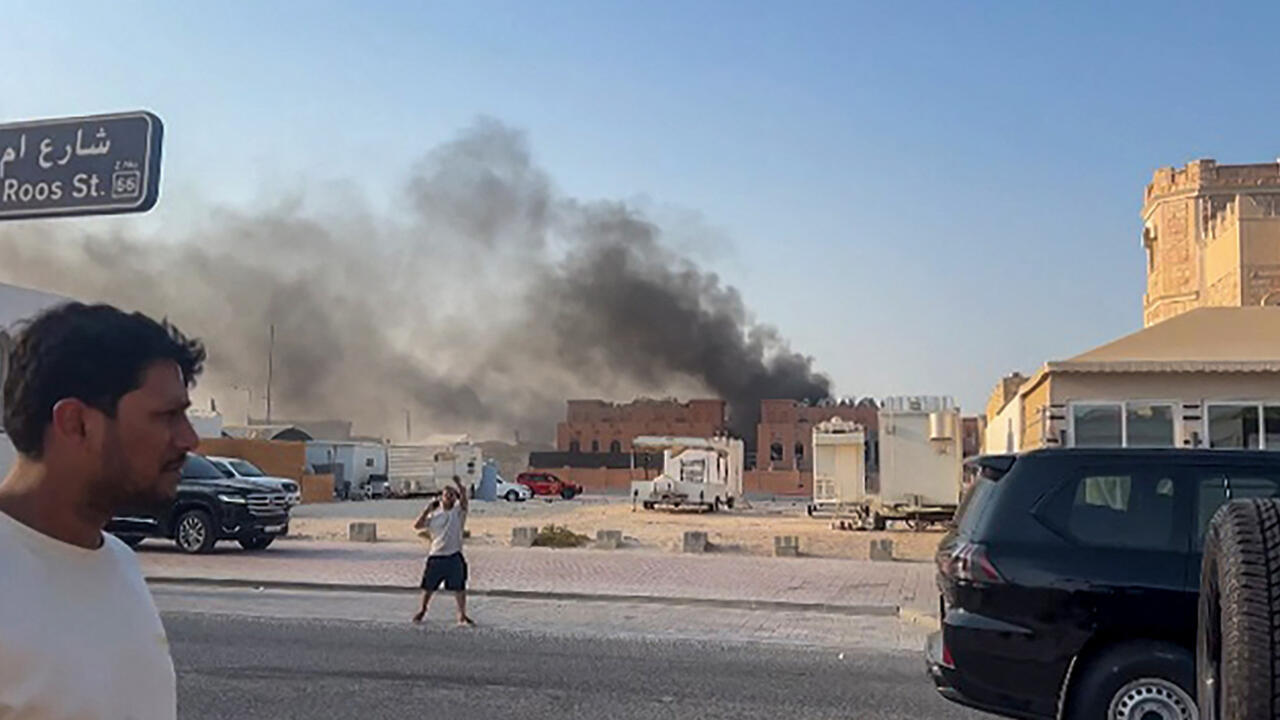(Statement) International call to strengthen antifascist and anti-imperialist action

The extreme right and neo-fascist forces are advancing on every continent.
While the threat manifests itself in different ways depending on the country or region, its common elements are readily identifiable: the goal of annihilating labor rights and protections, the suppression of workers’ organizations, the dismantling of social security and the imposition of a precarious existence for both employed and unemployed workers, the privatization of public services, the denial of climate change, the use of the high level of public debt as an excuse for intensifying austerity policies, the dispossession of peasants to clear the way for agribusiness, the displacement of indigenous peoples to promote unbridled extractivism, the tightening of inhumane migration policies, and an increase in military spending.
Enforcing these policies requires restrictions on the right to strike, freedom of expression, freedom of association, and freedom of assembly; the silencing of the press and of critical voices in schools and universities; denying scientific findings that contradict these policies; and strengthening of the structures and mechanisms of repression and surveillance.
The extreme right is co-opting discontent with the disastrous consequences of neoliberalism to accelerate these policies. To achieve this, like classical fascism, it seeks to direct this discontent against oppressed and dispossessed groups: migrants, women, LGBTQ+ people, those who benefit from inclusion programs, racialized people, and national or religious minorities. National chauvinism, racism, xenophobia, sexism, homophobia, incitement to hatred, and the normalization of cruelty accompany the advance of the radical right at every step, depending on the specific circumstances of each country.
The desire to accumulate wealth in the hands of capital and the relentless pursuit of maximum profit that underpins far-right policies are also manifested by the intensification of imperialist aggressions aimed at seizing resources and exploiting populations. This phenomenon is intertwined with the perpetuation of colonial situations, exemplified by the case of Palestine, where it takes the form of a genocide orchestrated by the State of Israel with the complicity of its imperialist allies.
Beyond its complicity with the Netanyahu government, the far right is forging international ties: congresses, think tanks, joint declarations, mutual support in electoral processes, collaboration among podcasters, propagandists, and specialists in disinformation. It is urgent that we advance the struggle against the right and imperialist aggression, and to be effective our struggle must be international.
The forces fighting against the rise of the far right, fascism, and imperialist aggression are neither monolithic nor homogeneous, nor have they ever been. They are diverse, and there are significant differences in analysis, strategy and tactics, programs, and alliance policy, as well as sensibilities and priorities. Experience teaches us that while it is important to recognize these differences, coordinating the struggle against increasingly menacing enemies is essential. This convergence can and must include all forces willing to defend the working class, farmers, migrants, women, LGBTQ+ people, racialized people, oppressed national or religious minorities, and indigenous peoples; to defend nature against ecocidal capitalism; to combat imperialist and colonial aggression, regardless of its origin; and to support the struggle of the peoples who resist, even when they are forced to take up arms.
It is urgent that we share analyses, strengthen ties, and agree on concrete actions. Those are the goals that inspired the convening of an International Antifascist and Anti-imperialist Conference in the city of Porto Alegre, Brazil, from March 26 to 29, 2026.
The Porto Alegre conference is an important step on a much longer path. The undersigned organizations and individuals commit to continue, tirelessly and in the most unified way possible, the struggle against the rising far right and imperialist aggressions, which is an essential dimension of our emancipatory, socialist, ecological, feminist, anti-racist, and internationalist project.
As Che Guevara wrote to his children: “Above all, always be capable of feeling deeply any injustice committed against anyone, anywhere in the world. This is the most beautiful quality in a revolutionary.”
Sign the call here
Initial signatories:
Argentina
1. Atilio A. Boron, professor at the University of Buenos Aires and the National University of Avellaneda.
2. Verónica Gago, feminist activist and researcher at the University of Buenos Aires.
3. Julio Gambina, Corriente Politica de Izquierda - CPI (Left Political Current), ATTAC Argentina, CADTM AYNA.
4. Claudio Katz, professor at the University of Buenos Aires and researcher at CONICET.
5. Beverly Keene, Diálogo 2000-Jubileo Sur Argentina (Dialogue 2000-Jubilee South Argentina) and Autoconvocatoria por la Suspensión del Pago e Investigación de la Deuda (Coalition for the Suspension of Payment and Investigation of the Debt).
6. Claudio Lozano, President of the Instrumento Electoral por la Unidad Popular (Electoral Instrument for Popular Unity).
7. Jorgelina Matusevicius, representative of Vientos del Pueblo Frente por el Poder Popular (Winds of the People Front for Popular Power).
8. Felisa Miceli, Economist, Former Minister of Economy of Argentina 2005/2007.
9. Martín Mosquera, editor of Jacobin Latin America (Jacobinlat).
10. María Elena Saludas, member of ATTAC-CADTM Argentina, Corriente Politica de Izquierda - CPI (Left Political Current).
Australia
11. Federico Fuentes, editor of LINKS International Journal of Socialist Renewal.
12. Pip Hinman, Co-editor of Green Left.
13. Susan Price, Co-editor of Green Left.
Basque Country
14. Garbiñe Aranburu Irazusta, General Coordinator of the LAB Trade Union.
15. Igor Arroyo Leatxe, General Coordinator of the LAB Trade Union.
16. Josu Chueca, former professor at the UPV/EHU. Historical memory activist.
17. Irati Jiménez, parliamentarian in Navarre, EH Bildu.
18. Mitxel Lakuntza Vicario, general secretary of the ELA Sindikatua Trade Union.
19. Oskar Matute, deputy in the Congress of the Spanish state, EH Bildu.
20. Luisa Menendez Aguirre, anti-racist and feminist activist, Bilbao.
21. Amaia Muñoa Capron-Manieux, deputy general secretary of the ELA Sindikatua Trade Union.
22. Anabel Sanz Del Pozo, feminist activist, Bilbao.
23. Igor Zulaika, parliamentarian in the CAPV, EH Bildu.
Belgium
24. Vanessa Amboldi, Director of CEPAG popular education movement.
25. France Arets, retired history teacher, active in supporting undocumented people, CRACPE.
26. Eléonore Bronstein, federal secretary of the Mouvement Ouvrier Chrétien Brussels (Christian Labour Movement Brussels).
27. Céline Caudron, Gauche Anticapitaliste (Anticapitalist Left), union and feminist activist.
28. Giulia Contes, Co-president of the Coordination Nationale d’Action pour la Paix et la Démocratie – CNAPD (National Coordination for Action for Peace and Democracy).
29. Paul-Emile Dupret, jurist, former official of The Left in the European Parliament.
30. Pierre Galand, former senator, president of the Association Belgo-Palestinienne (Belgian-Palestinian Association), president of the Conférence européenne de coordination du soutien au peuple sahraoui – EUCOCO (European Conference on Coordination of Support for the Sahrawi People).
31. Corinne Gobin, professor at the Université libre de Bruxelles.
32. Henri Goldman, Union des progressistes juifs de Belgique (Union of Jewish Progressives of Belgium).
33. Jean-François Tamellini, general secretary of the trade union FGTB wallonne.
34. Éric Toussaint, spokesperson for CADTM international.
35. Felipe Van Keirsbilck, general secretary of the Centrale Nationale des Employés - CNE/CSC (National Employees’ Centre).
36. Arnaud Zacharie, lecturer at ULB and ULiège, general secretary of the Centre National de Coopération au Développement – CNCD (National Centre for Development Cooperation).
Benin
37. Émilie Atchaka, feminist, president of CADD Benin.
Bolivia
38. Gabriela Montaño, physician, former President of the Chamber of Deputies and Senators, former Minister of Health.
Brazil
39. Ricardo Abreu de Melo “Alemão”, FMG.
40. Luana Alves, black feminist, PSOL municipal councilor in São Paulo.
41. Frei Betto, writer.
42. Sâmia Bomfim, PSOL federal deputy.
43. Bianca Borges, president of UNE.
44. Ana Cristina Carvalhaes, Journalist, Inprecor magazine.
45. Raul Carrion, Historian, former deputy, member of the FMG and the Secretariat of International Relations of the PC of Brazil.
46. Rodrigo Dilelio, president of the Partido dos Trabalhadores (Worker’s Party) of the city of Porto Alegre; Organizing Committee.
47. Israel Dutra, Secretary of Social Movements of PSOL, member of the National Directorate of PSOL.
48. Olívio Dutra, Former Governor of the State of Rio Grande do Sul; Former Minister of Cities (PT).
49. Luciana Genro, state deputy of Rio Grande do Sul and president of the Lauro Campos/Marielle Franco Foundation.
50. Tarso Genro, Former Governor of the State of Rio Grande do Sul; Former Minister of Justice (PT).
51. Socorro Gomes, CEBRAPAZ and the World Peace Council.
52. Amanda Harumy, International and Latin American affairs analyst.
53. Elias Jabbour, Geographer and China specialist.
54. Joao Machado, economist, PSOL.
55. Fernanda Melchionna, federal deputy of RS.
56. Maria do Rosário Nunes, Federal Deputy; Former Minister of Human Rights (PT).
57. Misiara Oliveira, assistant secretary of International Relations / National Executive Commission (PT).
58. Raul Pont, historian, former mayor of Porto Alegre, PT.
59. Ana Maria Prestes, historian, PhD in Political Science and secretary of International Relations of the CC of the PC of Brazil.
60. Edson Puchalski, president of PC do B Rio Grande do Sul.
61. Roberto Robaina, councilor and president of PSOL in Porto Alegre.
62. Miguel Rossetto, PT leader in the Legislative Assembly of Rio Grande do Sul.
63. Juliana Souza, PT leader in the Municipal Council of Porto Alegre.
64. Joao Pedro Stedile, social activist, Movimento dos Trabalhadores Rurais Sem Terra – MST (Landless Rural Workers Movement).
65. Gabi Tolotti, president of PSOL Rio Grande do Sul.
66. Thiago Ávila, international coordination of the Global Sumud Flotilla for Gaza.
Catalonia
67. Ada Colau, social activist, former Mayor of Barcelona, President of the Sentit Comú Foundation.
68. Gerardo Pisarello, deputy in the Congress for Comuns. Professor of law. University of Barcelona.
69. Daniel Raventós, professor at the University of Barcelona. Editorial Board of the magazine Sin Permiso and President of the Red Renta Básica (Basic Income Network).
70. Carles Riera, sociologist, former deputy and member of the Board of the Parliament of Catalonia for the CUP (2016-2024), president of the FDC Foundation, president of the Global Network for the Collective Rights of Peoples.
Chile
71. Daniel Jadue, Communist Party of Chile.
72. Jorge Sharp Fajardo, former mayor of Valparaíso, member of Transformar Chile (Transform Chile).
Colombia
73. Wilson Arias, senator of the Republic.
74. Isabel Cristina Zuleta, senator of the Pacto Histórico (Historical Pact).
Congo, Democratic Republic of
75. Yvonne Ngoyi, feminist, president of the Union of Women for Human Dignity (UFDH).
Ivory Coast
76. Solange Kone Sanogo, President of the Forum national sur les stratégies économiques et sociales - FNSES (National Forum on Economic and Social Strategies), National Coordination of the World March of Women.
Cuba
77. Rafael Acosta, writer, academic and researcher.
78. Aurelio Alonso, deputy director of the magazine Casa de las Américas.
79. Katiuska Blanco, writer and journalist, RedEDH.
80. Olga Fernández Ríos, Institute of Philosophy and Vice President of the Academy of Sciences of Cuba.
81. Norma Goicochea, president of the Asociación Cubana de las Naciones Unidas (Cuban Association of the United Nations), member of the Red en Defensa de la Humanidad - REDH (Network in Defense of Humanit).
82. Georgina Alfonso González, Dr., Director of the Institute of Philosophy.
83. Rafael Hernández, political scientist and professor. Director, Temas magazine.
84. Marilín Peña Pérez, popular educator, Dr. Martin Luther King Memorial Center (CMLK).
85. Pedro Prada, journalist, researcher and diplomat.
86. Abel Prieto, writer, former Minister of Culture, deputy to the National Assembly of People’s Power, president of Casa de las Américas (House of the Americas).
87. Raul Suárez, Rev., pastor emeritus of the Ebenezer Baptist Church, Founder of the Dr. Martin Luther King, Jr. Memorial Center.
88. Marlene Vázquez Pérez, director of the Center for Martí Studies.
Denmark
89. Per Clausen, member of the European Parliament, GUE/NGL, Red-Green Alliance.
90. Søren Søndergaard, member of Parliament, Red-Green Alliance.
Ecuador
91. Alberto Acosta, former president of the Constituent Assembly in 2007-2008.
France
92. Manon Aubry (LFI), co-president of the Left group (The Left) in the European Parliament.
93. Ludivine Bantigny, historian.
94. Olivier Besancenot, NPA - l’Anticapitaliste.
95. Leila Chaibi, member of the European Parliament, La France Insoumise (LFI), The Left.
96. Fabien Cohen, General Secretary of France Amérique Latine-FAL.
97. Hendrik Davi, deputy in the National Assembly of the ecological and social group and member of APRES.
98. Penelope Duggan, member of the bureau of the Fourth International, editor-in-chief of International Viewpoint.
99. Annie Ernaux, Nobel Prize in Literature 2022.
100. Angélique Grosmaire, General Secretary of the Fédération Sud PTT.
101. Rima Hassan, member of the European Parliament, LFI.
102. Michael Löwy, sociologist, ecosocialist.
103. Jean-Luc Mélenchon, La France Insoumise.
104. Ugo Palheta, editor of the Revue ContreTemps, author of “La nouvelle internationale fasciste”.
105. Patricia Pol, academic, representative of Attac France on the international Council of the World Social Forum.
106. Raymonde Poncet Monge, senator Les Écologistes (The Ecologists).
107. Thomas Portes, LFI deputy in the National Assembly.
108. Christine Poupin, Spokesperson for NPA - l’Anticapitaliste.
109. Denis Robert, founder and editorial director of Blast, independent media outlet.
110. Catherine Samary, researcher in political economy, specialist on the Balkans, member of the FI and the ENSU (European Network in Solidarity with Ukraine).
111. Aurélie Trouvé, deputy in the National Assembly, La France Insoumise (The Unsubmissive France).
112. Cem Yoldas, Spokesperson for the Jeune Garde Antifasciste (Young Anti-Fascist Guard).
113. Sophie Zafari, FSU trade unionist.
Galicia
114. Ana Miranda, member of the European Parliament, Bloque Nacionalista Galego – BNG (Galician Nationalist Bloc).
Germany
115. Angela Klein, chief editor in charge of the magazine SOZ.
116. Carola Rackete, biologist, activist, ship captain arrested in Italy in June 2019 for protecting refugees, former member of the European Parliament.
Greece
117. Zoe Konstantopoulou, lawyer, head of the Political Movement “Course to Freedom”, member of Parliament, former President of the Greek Parliament, initiator-president of the Truth Committee on Public Debt.
118. Nadia Valavani, economist and author, alternate finance minister in 2015 and former member of the Greek Parliament.
119. Yanis Varoufakis, leader of MeRA25, co-founder of DiEM25, professor of economics – University of Athens.
Haiti
120. Camille Chalmers, professor at the Université d’Etat d’Haiti (UEH), director of PAPDA, member of the regional executive committee of the Assemblée des Peuples de la Caraïbe – APC (Assembly of Caribbean Peoples), member of the Comité national haïtien pour la restitution et les réparations – CNHRR (Haitian National Committee for Restitution and Reparations).
India
121. Sushovan Dhar, Alternative Viewpoint magazine, member of the IC of the World Social Forum and of CADTM India.
122. Vijay Prashad, director, Tricontinental Institute for Social Research.
123. Achin Vanaik, retired professor from the University of Delhi and founding member of the Coalition for Nuclear Disarmament and Peace (CNDP).
Indonesia
124. Rahmat Maulana Sidik, Executive Director, Indonesia for Global Justice (IGJ).
.Iraq
125. Noor Salem, radio journalist.
Ireland
126. Paul Murphy, member of Parliament.
Italy
127. Eliana Como, member of the National Assembly of the CGIL union.
128. Nadia De Mond, feminist activist and researcher, Centro Studi per l’Autogestione (Center for Self-Management Studies).
129. Domenico Lucano, mayor of Riace in Calabria, member of the European Parliament (left group The Left), persecuted for his humanist policy of welcoming migrants and refugees by the Italian judicial system and the far-right Interior Minister Mr. Salvini, unjustly sentenced to 13 years in prison before winning his appeal after a long legal battle and thanks to solidarity.
130. Cristina Quintavalla, philosophy teacher, decolonial activist, against privatizations and public debt.
131. Ilaria Salis, anti-fascist activist, unjustly imprisoned in Budapest until her election in June 2024, member of the European Parliament (The Left).
Kenya
132. Ikal Angelei, Dr., academic activist for indigenous rights.
133. David Otieno, General Coordinator, Kenya Peasants League and Convening Chair of the Civil Society Reference Group, member of La Vía Campesina.
La Réunion/France
134. Françoise Vergès, author, decolonial feminist activist.
Lebanon
135. Sara Salloum, co-founder and president of AgriMovement in Lebanon.
Luxembourg
136. Justin Turpel, former deputy of ’déi Lénk – la Gauche’ (The Left) in the Chamber of Deputies.
137. David Wagner, member of déi Lénk (The Left) in the Chamber of Deputies.
Madagascar
138. Zo Randriamaro, President of the Movement of the Peoples of the Indian Ocean.
Malaysia
139. Jeyakumar Devaraj, President of the Socialist Party of Malaysia.
Mali
140. Massa Kone, from the organizing committee of the World Social Forum 2026 in Benin.
Martinique/France
141. Mireille Fanon-Mendes-France, co-president of the Frantz Fanon International Foundation.
142. Frantz Fanon Foundation
Mexico
143. Armando Bartra, writer, sociologist, philosopher and political analyst.
144. Verónica Carrillo Ortega, member of the Promotora Nacional para la Suspensión de la Deuda Pública en México (National Coalition for the Suspension of Public Debt in Mexico), CADTM AYNA.
145. Ana Esther Ceceña, coordinator of the Latin American Geopolitics Observatory and the Latin American Information Agency. National Autonomous University of Mexico.
146. Martín Esparza Flores, General Secretary of the Sindicato Mexicano de Electricistas – SME (Mexican Electricians Union).
147. Diana Fuentes, philosopher and political analyst, full-time professor-researcher at the Metropolitan Autonomous University.
148. María Auxilio Heredia Anaya, trade unionist and feminist, Autonomous University of Mexico City (UACM).
149. Ana López Rodríguez, a founder of the PRT and peasant leader from Sonora, member of the MSP.
150. Sara Lovera Lopez, journalist/feminist.
151. Pablo Moctezuma Barragán, political scientist, historian and urban planner; researcher at the Metropolitan Autonomous University, spokesperson for the Congreso por la Soberanía (Congress for Sovereignty).
152. Massimo Modonesi, historian, sociologist and political scientist, Full Professor at the Faculty of Political and Social Sciences of the National Autonomous University of Mexico (UNAM).
153. Humberto Montes de Oca, secretary of Foreign Affairs of the Sindicato Mexicano de Electricistas – SME (Mexican Electricians Union).
154. Magdalena Núñez Monreal, Federal Deputy in the Congress of Mexico.
155. César Enrique Pineda, sociologist and activist, teacher at the Faculty of Social Policies of the National Autonomous University of Mexico.
156. Mónica Soto Elízaga, feminist and co-founder of the Promotora Nacional para la Suspensión de la Deuda Pública en México (National Coalition for the Suspension of Public Debt in Mexico), CADTM AYNA.
157. Paco Ignacio Taibo II, writer and Director of the Fondo de Cultura Económica.
158. Carolina Verduzco Ríos, anthropologist, professor at the National Polytechnic Institute, member of Comité 68 (Committee 68).
Morocco
159. Fatima Zahra El Belghiti, member of Attac CADTM Morocco.
Nigeria
160. Emem Okon, founder and director of the Kebetkache Women’s Development and Resource Centre.
Pakistan
161. Sheema Kermani, Performing Artist, human rights defender.
Palestine/France
162. Salah Hamouri, Franco-Palestinian lawyer, former political prisoner for 10 years in Israeli prisons, deported to France in 2022.
Peru
163. Evelyn Capchi Sotelo, Secretary of National Organization of NUEVO PERÚ POR EL BUEN VIVIR (New Peru for Good Living).
164. Jorge Escalante Echeandia, political responsible for the SÚMATE current, national leader of the organization NUEVO PERÚ POR EL BUEN VIVIR (New Peru for Good Living).
165. Yolanda Lara Cortez, Feminist and socio-environmental leader of the province of Santa Ancash.
166. Flavio Olortegui, Leader of the Federación Nacional de trabajadores textiles del Perú (National Federation of Textile Workers of Peru).
Philippines
167. Walden Bello, co-chair of the board of directors, Focus on the Global South.
168. Jen Cornelio, President of Inged Fintailan (IP/Women’s Organization of Mindanao).
169. Dorothy Guerrero, consultant, African Womin Alliance; Co-chair of the board of directors of the London Mining Network.
170. Reihana Mohideen, International Office, Partido Lakas ng Masa-PLM (Party of the Laboring Masses).
171. Lidy Nacpil, Coordinator of the Asian People’s Movement on Debt and Development.
172. Reyna Joyce Villagomez, General Secretary of the Rural Poor Movement.
Portugal
173. Mamadou Ba, researcher, leader of SOS Racismo Portugal (SOS Racism Portugal).
174. Jorge Costa, journalist, member of the national leadership of Bloco de Esquerda (Left Bloc).
175. Mariana Mortágua, economist, Bloco de Esquerda (Left Bloc).
176. José Manuel Pureza, coordinator of Bloco de Esquerda (Left Bloc).
177. Alda Sousa, former MEP of Bloco de Esquerda (Left Bloc).
Puerto Rico
178. Manuel Rodríguez Banchs, spokesperson for the Instituto Internacional de Investigación y Formación Obrera y Sindical - iNFOS (International Institute for Labor and Trade Union Research and Training).
179. Rafael Bernabe, author and university professor; former member of the Puerto Rico Senate for the Movimiento Victoria Ciudadana (Citizen Victory Movement).
Senegal
180. Aly Sagne, founder and director of Lumière Synergies pour le Développement (Light Synergies for Development).
South Africa
181. Mercia Andrews, coordinator of the Assembly of Rural Women of Southern Africa, founding member of the Palestine solidarity campaign and active member of BDS South Africa.
182. Patrick Bond, Distinguished Professor in the Department of Sociology at the University of Johannesburg, where he directs the Centre for Social Change.
183. Samantha Hargreaves, founder and director of WoMin.
184. Trevor Ngwane, President, United Front, Johannesburg.
Spain
185. Fernanda Gadea, coordinator of ATTAC Spain.
186. Estrella Galán, Member of the European Parliament for SUMAR, The Left group.
187. Manuel Garí Ramos, ecosocialist economist, member of the Advisory Council of the magazine Viento Sur.
188. Vicent Marzà i Ibáñez, deputy in the European Parliament for Compromís, Valencian Country.
189. Fátima Martín, journalist, editor of the online newspaper FemeninoRural.com, member of CADTM.
190. Irene Montero, political secretary of PODEMOS, MEP and former Minister of Equality.
191. Jaime Pastor, editor of the magazine Viento Sur.
192. Manu Pineda, former deputy to the European Parliament and head of International Relations of the Communist Party of Spain.
193. Olga Rodríguez, journalist and writer.
194. Teresa Rodríguez, Spokesperson for Adelante Andalucía (Go ahead, Andalusia), secondary and high school teacher.
195. Isabel Serra Sánchez, Deputy in the European Parliament for Podemos/The Left.
196. Miguel Urban, former MEP, member of the editorial board of the magazine Viento Sur.
197. Koldobi Velasco Vázquez, participant in the Alternativa antimilitarista y del Movimiento Objetor de Conciencia/Acción Directa No Violenta (Anti-militarist Alternative and the Conscientious Objector Movement/Non-Violent Direct Action). University professor of Social Work, Canary Islands.
Sri Lanka
198. Swasthika Arulingam, President of the United Federation of Labour.
199. Kalpa Rajapaksha, Dr., senior lecturer, Department of Economics, University of Peradeniya.
200. Amali Wedagedara, Bandaranaike Centre for International Studies.
Switzerland
201. Sébastien Bertrand, Enseignant.e.s pour le climat (Teachers for the climate), Syndicat des Services Publics (Swiss Union of Public Service Personnel) and member of solidaritéS Geneva.
202. Hadrien Buclin, deputy of Ensemble à Gauche (Together on the Left) in the Parliament of the Canton of Vaud.
203. Marianne Ebel, World March of Women and solidaritéS Neuchâtel.
204. Jocelyne Haller, solidaritéS, former cantonal deputy of Geneva.
205. Gabriella Lima, member of CADTM Switzerland and the Ensemble à Gauche (Together on the Left) platform.
206. Mathilde Marendaz, deputy of Ensemble à Gauche (Together on the Left) in the Parliament of the Canton of Vaud.
207. Aude Martenot, researcher and associative coordinator.
208. Mathieu Menghini, historian of cultural action.
209. Françoise Nyffler, Feminist Strike Collective Switzerland.
210. Stefanie Prezioso, former deputy, Swiss Parliament.
211. Juan Tortosa, spokesperson for CADTM-Switzerland and member of SolidaritéS Switzerland.
212. María Wuillemin, ecofeminist activist, member of the Colectivo Jaguar (Jaguar Collective).
213. Jean Ziegler, writer, former parliamentarian, former UN Special Rapporteur on the right to food.
Syria
214. Joseph Daher, academic and specialist in the political economy of the Middle East (resident in Switzerland).
215. Munif Mulhen, left-wing political activist. Former political prisoner for 16 years during the Hafez al-Assad regime (1970-2000).
Tunisia
216. Imen Louati, Tunisian activist, one of the founding members of the Arab food sovereignty network (Siyada).
217. Layla Riahi, member of the Siyada network for food sovereignty.
United Kingdom
218. Gilbert Achcar, professor emeritus, SOAS, University of London.
219. Jeremy Corbyn, member of Parliament, co-founder of Your Party.
220. Michael Roberts, economist and author.
221. Zarah Sultana, member of Parliament, co-founder of Your Party.
United States
222. David Adler, Deputy General Coordinator of the Progressive International.
223. Anthony Arnove, editor. Tempest Magazine and Haymarket Books.
224. Tithi Bhattacharya, professor of History, Purdue University, co-author of Feminism for the 99% : A Manifesto.
225. Robert Brenner, professor emeritus of history and director of the Center for Social Theory and Comparative History at the University of California, Los Angeles (UCLA).
226. Vivek Chibber, professor of sociology at New York University. Editor of Catalyst.
227. Olivia DiNucci, anti-militarism and climate justice organizer based in Washington D.C. and writer, affiliated with Code Pink, a grassroots feminist organization working to end U.S. wars and militarism.
228. Dianne Feeley, retired auto worker (UAW Local 235), member of Solidarity, Metro Detroit DSA and editor of Against the Current magazine.
229. Nancy Fraser, professor emerita, New School for Social Research and member of the Editorial Committee of New Left Review, co-author of Feminism for the 99% : A Manifesto.
230. Michael Hudson, professor of economics, emeritus, UMKC, and author of Super Imperialism.
231. Neal Meyer, member of DSA and editor for Socialist Call.
232. Christian Parenti, investigative journalist, scholar, author and contributing editor at The Nation.
233. Jana Silverman, Professor of International Relations, Universidade Federal do ABC (UFABC) and co-chair, Democratic Socialists of America (DSA) International Committee.
234. Bhaskar Sunkara, founding editor of Jacobin, president of The Nation magazine.
235. Suzi Weissman, professor of Political Science at Saint Mary’s College of California.
Venezuela
236. Luis Bonilla-Molina, director of Otras Voces en Educación (Other Voices in Education).





